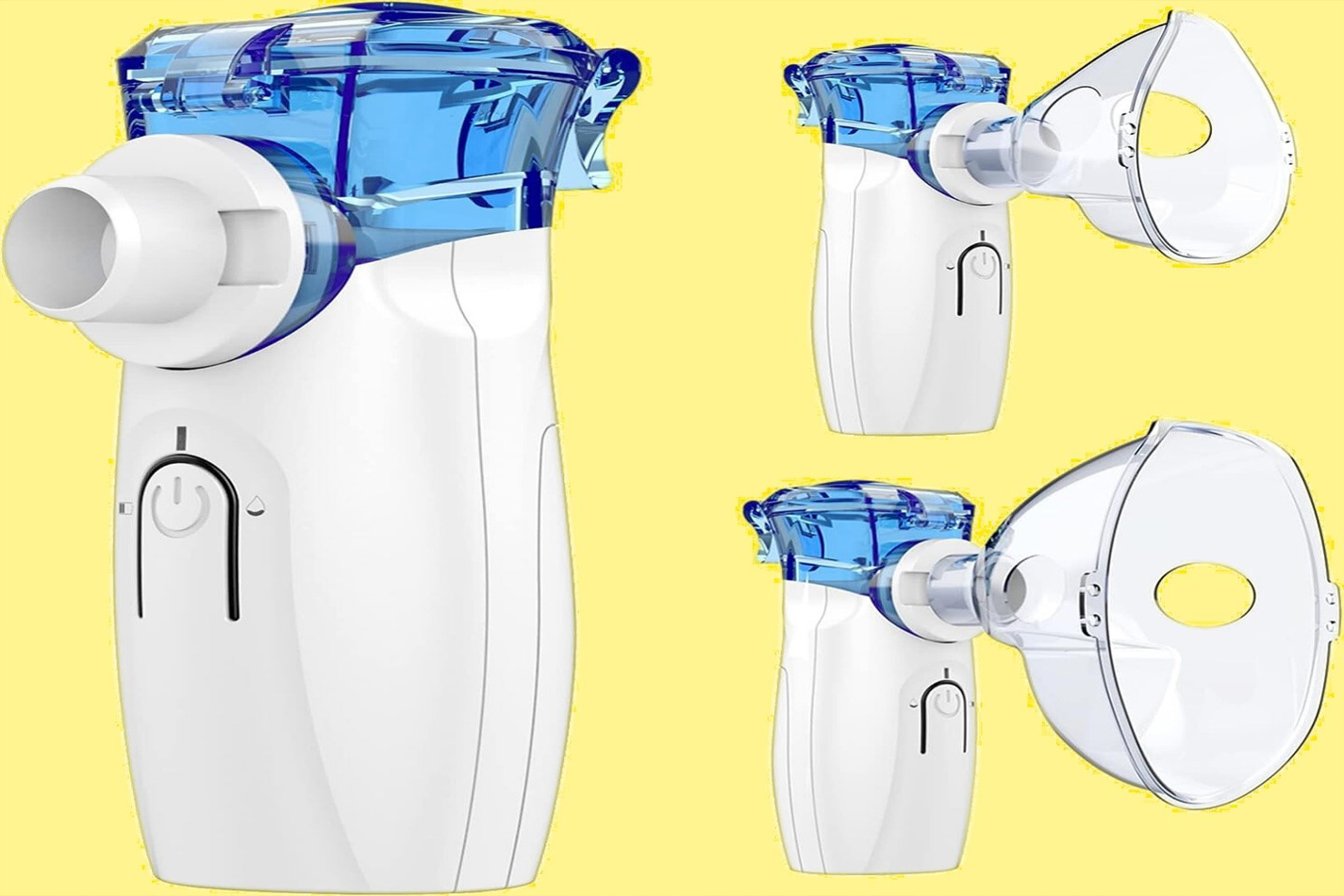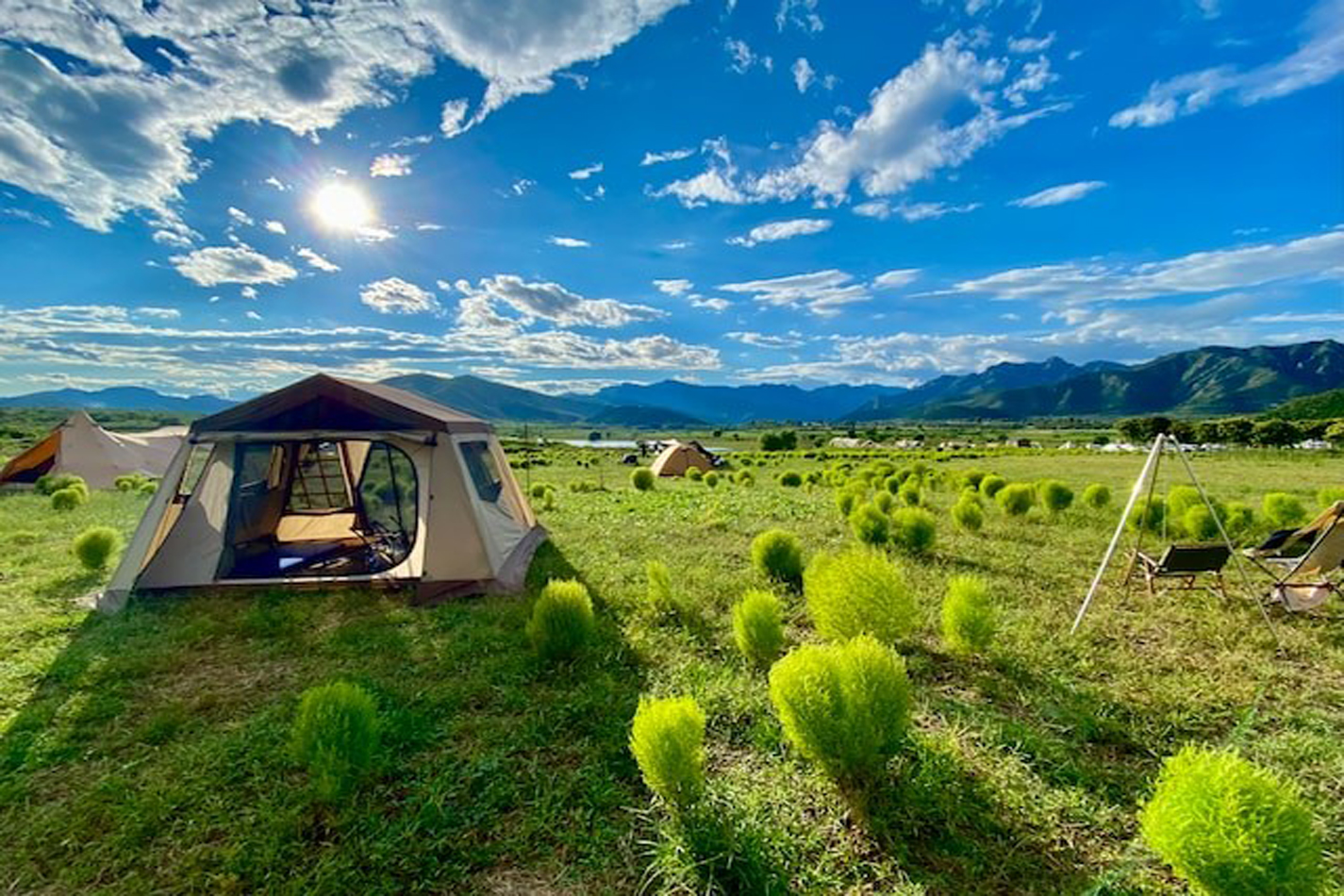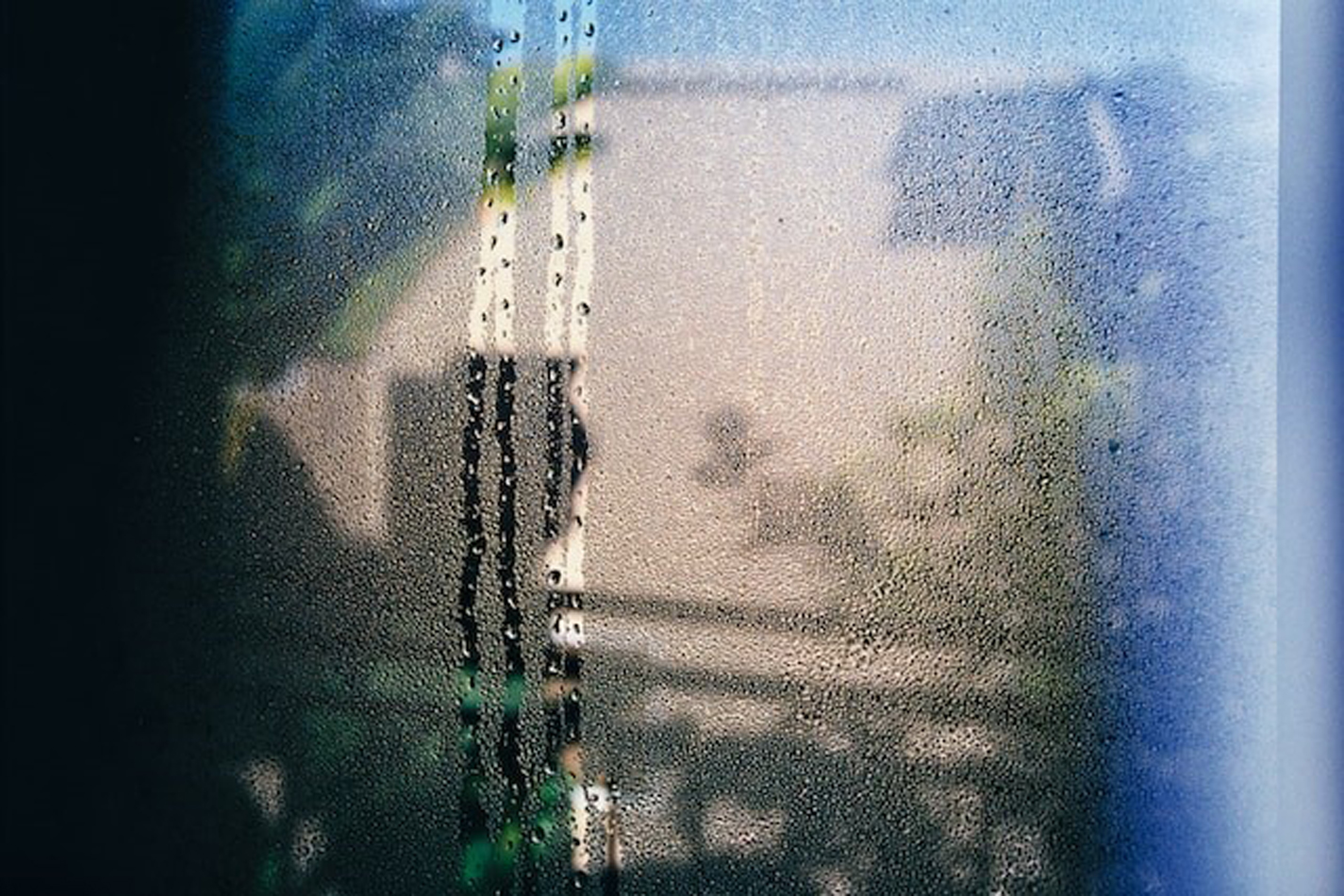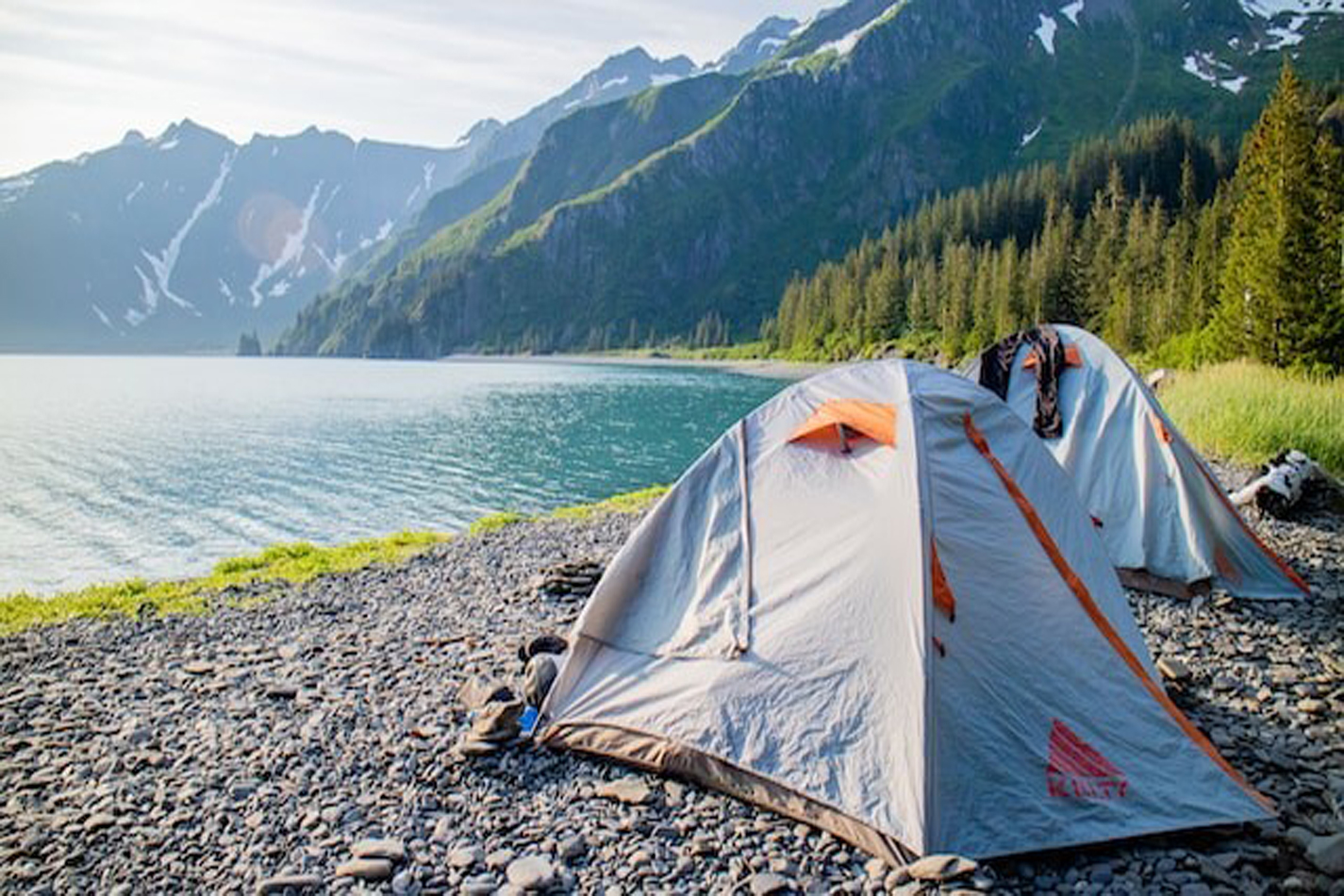If you're planning a camping trip, but are worried about taking your CPAP therapy into the great outdoors, this guide to CPAP camping is for you! Camping is a wonderful way to escape the hustle and bustle of daily life and reconnect with nature, but for those who rely on a CPAP (Continuous Positive Airway Pressure) machine to manage sleep apnea, it can be a daunting prospect.
Fear not! With the right preparation and knowledge, you can enjoy the serenity of camping while ensuring a restful night's sleep with your CPAP machine by your side.

In this ultimate guide, we'll walk you through everything you need to know to make CPAP camping easy and stress-free.
What we Will Cover?
What’s a CPAP machine? CPAP Camping Challenges: Don't Let Them Halt Your Adventure Do You Know Taking CPAP Machine to Camping Offers Number Of Benefits? Camping with CAPAP – Compatible Options Camping with CPAP – Electrical Plug in available Camping with CPAP in RV (Recreational Vehicles) Camping with CPAP Off-Grid Campsite (No Electricity) Important Tips for Camping with CPAP machine Packing your CPAP machine for Camping Trip Frequently Asked Question
What’s a CPAP machine?
A "CPAP machine" (Continuous Positive Airway Pressure) is a term used for machines that treat sleep apnea by sending air through a tube and mask to keep your airway open while you sleep. It's called sleep therapy and helps you sleep better.
CPAP Camping Challenges: Don't Let Them Halt Your Adventure
When considering camping with a CPAP machine, you may have concerns about various factors that could potentially hinder your ability to fully enjoy camping in nature. Or these challenges might hold you back from going in the wilderness. Below are the most common concerns that come to mind before going on camping with a CPAP machine.
- The first concern that comes to mind is the availability of electricity, as many campsites have limited access to power.
- Will it be difficult to carry CPAP machine to the campsite?
- Will environmental factors affect the performance of my CPAP machine? Factors such that extreme temperature i.e. hot and cold, humidity level and high altitude can affect the performance of your CPAP machine.
- What additional supplies I might need to use CPAP machine during camping. For instance, supplies like batteries or power source, extension cord, mask and tubing, filters, distilled water, and power adaptor etc. to operationalize the CPAP machine.
- How to use CPAP machine for the first time during camping.
Camping with your CPAP machine can be a stress-free experience with proper planning. When preparing for your trip and assembling your CPAP supplies, it's crucial to consider several key factors. By doing so, you can ensure a seamless and enjoyable camping adventure without compromising your sleep therapy.
Do You Know Taking CPAP Machine To Camping Offers Number Of Benefits?
Taking a CPAP machine to camping can offer several benefits for individuals who require this therapy for sleep apnea. Here are some of the most common benefits: This can lead to improved sleep quality, reduced disruptions, and fewer awakenings during the night.
CPAP therapy can help campers wake up feeling more refreshed and ready to take on outdoor activities. Effective CPAP therapy helps prevent daytime fatigue, ensuring campers have the energy needed to fully participate in outdoor adventures, such as hiking, fishing, or exploring nature trails. Bringing a CPAP machine while camping helps maintain therapy, potentially reducing the risk of health complications associated with untreated sleep apnea. CPAP therapy can help campers stay alert, focused, and in a better mood during their outdoor excursions. It eliminates the worry of struggling with sleep apnea symptoms during your trip. The reduced noise and prevention of snoring associated with CPAP therapy can lead to a more peaceful camping experience for everyone. Maintaining consistent CPAP therapy, even during camping trips, helps individuals avoid potential setbacks in their sleep apnea management.
Camping with CAPAP – Compatible Options
The first thing you need to consider before planning a trip is the availability of electricity at the campsite. Generally, we have three options:
- Campsite with Electrical Power
- Camping with RVing (Recreational Vehicle)
- Campsite without Electrical Power
Camping with CPAP – Electrical Plug in available
If you are kind of person who don’t go off the road to some remote area and enjoy the serene, don’t worry, there are several parks and campsite that offer uninterrupted electricity in the US as well as in Canada and Australia as well. However, it is highly recommended to check with the campground authority for booking a place for your tent etc.
In this situation, your only concern will be to bring along the CPAP machine with you. These sites with electrical power and will run your machine. You can also easily attach a heated humidifier with you CPAP machine running all night which otherwise cause a huge drain to batteries.
Including an extension cord and adapter in your camping gear is advisable to ensure convenient access to the power source from within your tent. Additionally, if you have the budget, consider buying a travel CPAP unit. Travel CPAP units are notably more compact than their home counterparts especially for backpackers who prioritize minimizing space and weight. It weighing just over 7.6 oz and resembling the size of a softball.
Powered campsites are popular due to their typical cleanliness and excellent upkeep. Furthermore, these sites often offer additional amenities such as restrooms, showers, and WiFi access. Powered campsites have downsides, like being fully booked on popular weekends and attracting crowds, causing noise. If you seek solitude and rugged beauty in camping, consider CPAP batteries.
Camping with CPAP in RV (Recreational Vehicles)
RV campsites, also known as RV parks or campgrounds, are designated areas where recreational vehicle (RV) owners can park and stay overnight or for an extended period. These sites provide essential amenities and services to enhance the camping experience for RV enthusiasts.
However, some RV campsite also charging for staying in the vicinity. Fees vary depending on factors such as location, amenities, and the duration of your stay. Prices can range from relatively inexpensive to more upscale and costly for campgrounds with extensive facilities.
These Recreational Vehicles (RVs) equipped with power outlets allows you to connect your CPAP machine with and use it overnight for a comfortable sleep. Please make sure to include an adaptor in your packing as RVs typically have a built-in electrical system that includes a DC (direct current) power source. Most CPAP machines come with an AC (alternating current) power cord, which is designed to plug into standard household electrical outlets. However, when you're in an RV, you'll be dealing with DC power. To bridge this gap, you'll need a DC to AC power adapter or inverter. This device converts the RV's DC power into AC power, allowing you to plug in your CPAP machine as you would at home.
It's crucial to ensure that the inverter you choose can provide the necessary wattage to run your CPAP machine. Check the power requirements of your CPAP device (usually found on the machine or in its manual) to select an appropriate inverter. CPAP machines typically require less power than larger appliances. Connect the inverter to the RV's DC power source, usually by plugging it into a 12-volt socket. Using an inverter will draw power from the RV's battery, so it's essential to monitor your RV's battery level to avoid draining it completely.
Some RVers invest in additional batteries or portable power stations to ensure they have enough power to run their CPAP machine throughout the night without draining the RV's primary batteries. Generally, traveling in an RV provides the comforts of home, such as temperature control and a comfortable bed, offering a convenient and pleasant choice for individuals dealing with sleep apnea.
Camping with CPAP Off-Grid Campsite (No Electricity)
If the idea of camping at a full-service campground doesn't suit your preferences, and you prefer a more secluded sleep spot, you'll require a battery or standalone power source to operate your CPAP machine.
Instead of skipping your CPAP which is not recommended, it is highly advisable to bring along the CPAP machine which can significantly enhance your trip. By taking your CPAP machine, you ensure better health and a more enjoyable vacation. So, despite the minor inconvenience, it's a wise choice that you won't regret.
The only way to power your CPAP machine where there is no electricity is with battery. Batteries makes it possible to move freely off the Grid.
Different ways to power your CPAP 1. Deep Cycle or Marine Batteries 2. Portable CPAP Batteries 3. Generator 4. DC Power Source
1. Deep Cycle Batteries
Deep cycle batteries are commonly used during camping to power CPAP machines and other electrical devices when access to traditional electrical outlets is limited. These batteries are designed to provide a consistent and reliable source of power over an extended period, making them well-suited for camping trips where you need to run your CPAP machine throughout the night.
If weight is not a concern for you, utilizing a deep-cycle battery is an effective and budget-friendly method to provide off-grid power for your CPAP machine, especially when RV camping with your CPAP. Deep cycle batteries are engineered for uninterrupted power supply and are readily available at auto parts retailers or any establishment selling mobility scooters.
Using DC Cable Adaptor for Powering up CPAP machine
To connect your CPAP machine to the battery, you will need DC Cable Adaptor or invertor. Make sure the DC Cable Adaptor is compatible with your CPAP model. The alligator clips of the DC Cable Adaptor need to be connected to the positive and negative terminal of the battery. Before making any connections, ensure your CPAP machine is turned off.
Using Invertor
An inverter converts the DC power provided by the battery to AC power so your machine can use it.
- Connect the inverter to a suitable DC power source.
- Plug your CPAP machine into the inverter's AC outlet.
- Turn on the inverter and your CPAP machine for power.
2. Portable CPAP Batteries
CPAP batteries offer remarkable portability and ease of use, making them an excellent choice for campers. they operate quietly, making them ideal for campsites where you need to be mindful of disturbing your neighbors.
They fit easily into any backpack and often include USB ports for charging personal electronics such as phones and laptops. These batteries can be either machine-specific or universal. A machine-specific CPAP battery connects to your CPAP machine through specialized adapter cables, often included with the battery. However, this might not be the case, review battery specification and product details. (Recommended Article: Best CPAP Batteries for Camping)
How to Charge Lithium Batteries?
There are certain options one can utilize during camping for charging batteries. When you have access to an AC power source, utilizing your CPAP machine's AC power supply is a convenient option. For wilderness adventures, solar charging panels provide a sustainable energy source. Meanwhile, when car camping or RVing, a battery-specific DC converter allows you to charge the battery from your vehicle.
3. Generator
Although not the best and most feasible option to operate your CPAP machine with, but again we can consider it depending on the situation.
Generators operate by utilizing gasoline, propane, or diesel fuel to produce electrical power. During camping larger generators are capable of generating higher power levels and are typically employed to run high-power appliances.
Using a generator to operate your CPAP machine during camping can provide a reliable power source. However, generator produce a lot of noise and not a budget friendly option. It is highly advisable to choose generator that produces minimal noise to avoid disturbing fellow campers. Be mindful of fuel consumption, especially if you plan to run the generator for an extended period. Carry sufficient fuel reserves. Keep all electrical connections dry and protected from moisture.
4. DC Power Source
Using your car battery as a DC power source to operate your CPAP machine during camping is a practical option, especially when camping near your vehicle.
Equipment Needed
CPAP Machine: Ensure your CPAP machine is compatible with DC power input. Most CPAP machines have this capability. CPAP DC Adapter Cable: This cable connects your CPAP machine to the car battery. It's usually included with the machine or available as an accessory. Car Battery: Your vehicle's 12-volt car battery serves as the power source. Inverter (Optional): If your CPAP machine uses AC power and not DC, you may need an inverter to convert the car battery's DC power to AC power. Convenient power source, especially when camping near your vehicle. Reliable and readily available power, as long as the car battery is in good condition. No need for additional equipment (like inverters) if your CPAP machine operates on DC power. Risk of draining the car battery: the prolonged use of your CPAP machine can drain the car battery, potentially preventing the vehicle from starting. Limited portability: You need to stay close to your vehicle or use extension cables to connect the CPAP machine, limiting your camping location options.
Important Tips for Camping with CPAP machine
Tip 1.If the budget and space allow and not causing any inconvenience, we recommend considering Solar Charger option. Solar panels can efficiently recharge your battery while you explore the wilderness during the day. Upon returning to your campsite in the evening, your battery will be fully charged and ready to power your CPAP machine throughout the night. It's important to note that solar charging solutions are typically tailored to specific battery types and not universally compatible.
Tip 2. As mention earlier, try to opt for a portable CPAP machine for camping. Its lightweight, occupy less space – ideal for backpacker and hikers. Travel CPAP unit are specifically designed for campers and hikers and camping trips. Please check here (The best portable CPAP machine for Camping)
Tip 3. Be mindful of the use of power Inverters. Since power inverters also drawing power from the batter to convert DC into AC, and run parallel with CPAP machine on the battery power. It will quickly drain the battery and limited the CPAP functioning time. It is recommended to do a little bit research to find the battery that specifically design for your CPAP machine. It has a cable that directly connect the battery with machine and eliminate the intermediary role of power inverter.
Tip 4. Humidifier - Humidification plays a vital role in positive airway pressure therapy. The inclusion of a humidifier in your CPAP setup, whether integrated into the machine or as a separate attachment, can greatly enhance your therapy experience, especially in dry environments. However, running a CPAP with a humidifier and a heated tube can cut your battery life by as much as 80%!
For optimal battery performance, consider using heat moisture exchangers (HMEs) instead of a heated humidifier. HMEs are compact, disc-shaped devices that utilize the heat and moisture from your exhaled breath to humidify your next inhalation. They easily fit between your CPAP mask and machine, saving space.
Packing your CPAP machine for Camping Trip
When you've made the decision to venture into the wilderness, away from the hustle and bustle of city life, meticulous packing becomes essential. To ensure a relaxed and uninterrupted camping experience, it's crucial to secure and protect everything effectively. Make sure you have all the accessories and CPAP machine neat and clean Test the machine and its related equipment for satisfactory performance during camping Power Adaptors, Inverters, and other items are properly packed in waterproof bags. Cleaning supplies like wipes are essential for relax camping Consider shock proof packing of the CPAP machine on the bumpy road. Consult your doctor before going on camping trip Also consider environmental factors like rain forecast, humid conditions, extreme temperature, cold weather etc. and plan accordingly. Happy Camping with CPAP!
FAQs
Can I use my CPAP machine while camping in areas without electricity?
A: Yes, you can. There are various off-grid power options such as deep cycle batteries, portable CPAP batteries, generators, and DC power sources to ensure uninterrupted CPAP therapy during camping.
What if my camping site has electrical power?
A: If your campsite has electricity, you can easily use your CPAP machine by plugging it in. Ensure you have the necessary adapters and extension cords for convenient access to the power source.
Are there campsites specifically equipped for CPAP users?
A: Some campsites, especially RV parks, offer electrical hookups, making it convenient for CPAP users. Check with the campground authorities beforehand to ensure the availability of power.
How do I transport my CPAP machine to the campsite?
A: Transporting your CPAP machine is easy. Pack it securely in a shockproof case, and consider a travel CPAP unit for a more compact option, especially if you're backpacking.
Can environmental factors affect my CPAP machine's performance?
A: Yes, extreme temperatures, humidity, and high altitude can impact CPAP performance. Be prepared with appropriate supplies like distilled water, filters, and a humidifier if needed.
What are the benefits of taking my CPAP machine camping?
A: Camping with a CPAP machine can improve sleep quality, reduce disruptions, and ensure you wake up feeling refreshed. It also helps maintain therapy, preventing daytime fatigue and enhancing your overall camping experience.
How can I power my CPAP machine in an RV?
A: RV campsites often have power outlets. Use a DC to AC power inverter to connect your CPAP machine to the RV's electrical system, ensuring a comfortable sleep.
Are there portable options for CPAP batteries?
A: Yes, portable CPAP batteries offer convenience and are ideal for camping. They come in machine-specific or universal options, providing a quiet and portable power source.
Can I use my car battery to power my CPAP machine?
A: Yes, using your car battery is a practical option, especially when camping near your vehicle. Ensure your CPAP machine is compatible with DC power, and use a CPAP DC adapter cable.
Any tips for packing my CPAP machine for a camping trip?
A: Pack your CPAP machine in a waterproof bag, include necessary power adapters and inverters, and test the equipment before your trip. Consider a shockproof case for bumpy roads and consult your doctor before camping.



